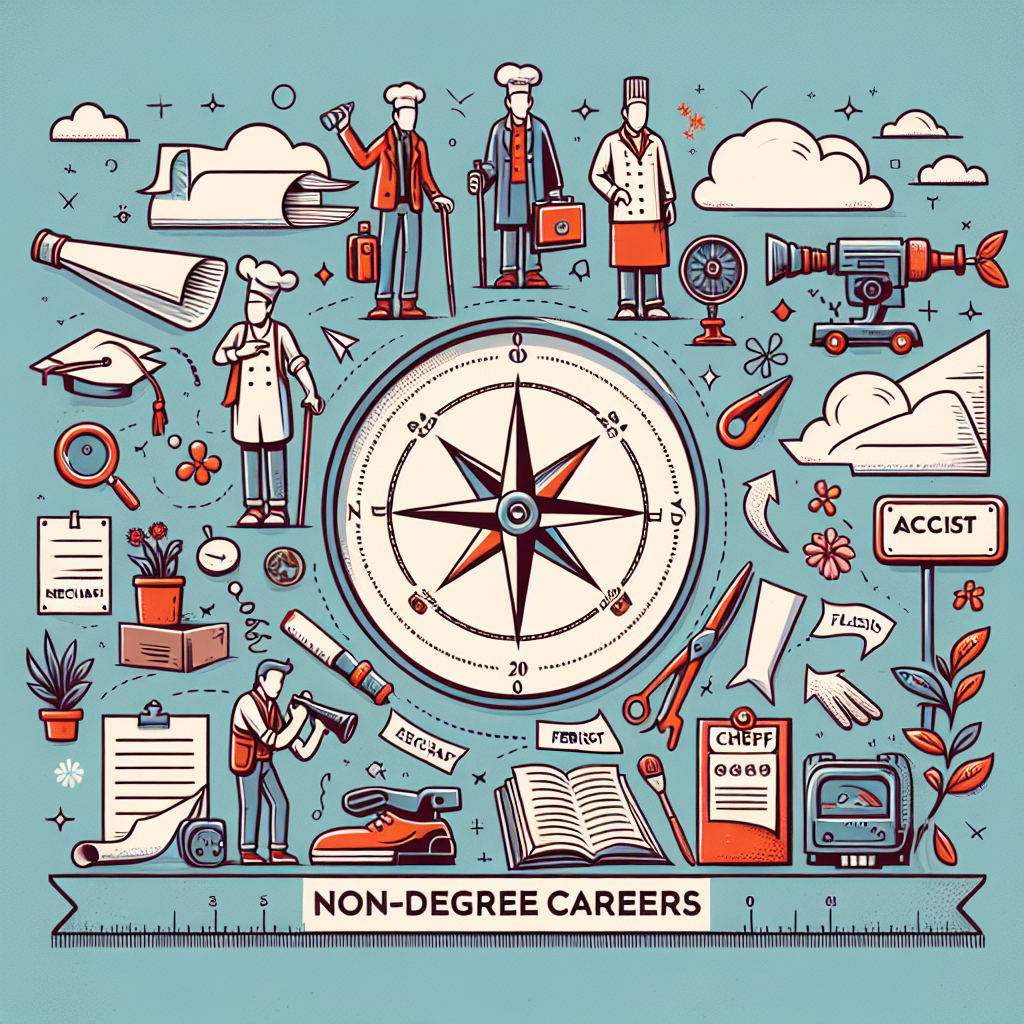Exploring Fun Careers Without Degree: What It Means For You. If you’ve been wondering whether a formal diploma is the only ticket to work you enjoy, this article walks through what a degree-free career can look like, which paths tend to be most enjoyable, and how to plan a practical transition. The goal is to help you identify satisfying work that matches your interests and strengths, whether you’re starting out, changing direction, or returning to the workforce.
Why “fun” doesn’t always mean frivolous
Fun careers often combine meaningful tasks, autonomy, and opportunities for skill growth. A job that feels playful or creative still requires planning and competence. Many roles that don’t require a college degree emphasize hands-on ability, client interaction, or creative output — areas where passion can trump formal credentials.
Types of enjoyable roles without a degree
Below are categories where people commonly find both enjoyment and success without a traditional four-year degree:
- Creative trades: graphic design (self-taught or bootcamps), photography, makeup artistry, craft-based entrepreneurship.
- Skilled hands-on work: culinary arts, carpentry, barbering or hairstyling, floristry.
- Service and hospitality: event coordination, tour experiences, specialty baristas, boutique hotel roles.
- Tech-adjacent roles: coding bootcamp graduates, QA testing, IT support, digital marketing specialists.
- Independent and gig work: content creation, social media management, online teaching of hobbies.
A close look: fun careers without a college degree
Many of these fields reward demonstrated skill and a strong portfolio or client network more than formal transcripts. For example, a baker with a loyal local customer base can find immense satisfaction and steady income without a degree; similarly, a freelance web developer who completed a coding academy and builds strong client relationships can thrive. What matters most is a combination of technical competence, business sense, and personal branding.
How to get started
Begin by clarifying what “fun” means to you — creativity, flexibility, people contact, or technical challenge. Then map practical steps:
- Skill inventory: list transferable skills you already have (communication, project management, hands-on techniques).
- Low-cost training: consider short courses, apprenticeships, or industry certifications.
- Build a portfolio: create samples, volunteer projects, or small gigs to demonstrate ability.
- Network intentionally: join local groups, online communities, and industry meetups.
Transition stories and resources
People change careers at all stages of life. If you’re exploring a later-life pivot, there are resources tailored to restarting with experience rather than academic credentials. For inspiration on making a fresh start midlife, see the guide on starting fresh: new career paths for women at 50, which outlines approaches to reskilling, leveraging life experience, and finding fulfilling work later in life.
Balancing risk and reward
A degree-free path often requires more initial hustle: building a client base, assembling proof of work, or completing targeted training. To manage risk, consider a phased approach — keep part-time income sources while you build your new career, save an emergency fund, and test market demand through side projects before quitting a stable job.
Data and planning
Though many fulfilling careers exist outside the traditional degree route, it’s useful to understand broader workforce patterns. The U.S. Census Bureau offers data on educational attainment and labor trends that can help you assess local demand and earnings potential for various occupations: U.S. Census Bureau — Educational Attainment.
Quick checklist
- Identify the core skills for your target role.
- Create a 6-month learning and portfolio plan.
- Ask for informational interviews with people in the field.
- Start with small paid gigs to validate interest and pricing.
FAQ
Q: Can I earn a living wage without a degree?
A: Yes — many trades, creative roles, and tech-adjacent jobs can provide solid incomes. Earnings depend on skill, location, and how effectively you market yourself.
Q: How do employers evaluate candidates without degrees?
A: Employers often look for demonstrable skills, relevant experience, a portfolio, strong references, and a professional online presence. Short courses, certifications, and real-world projects can substitute for formal education.
Q: Is freelancing the only option without a degree?
A: No. While freelancing is common, many degree-free careers exist within companies (e.g., culinary, hospitality, IT support, sales, creative agencies) where experience and performance matter most.



